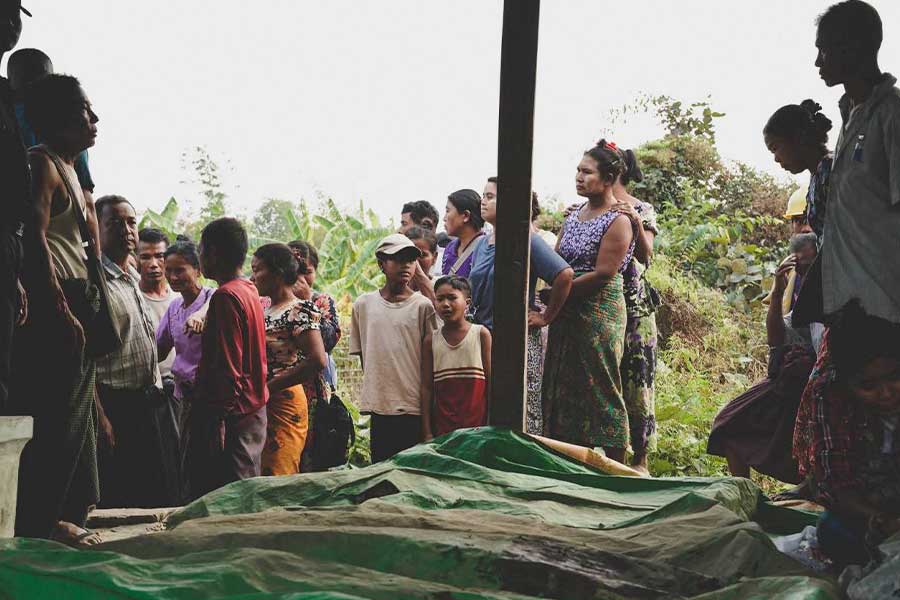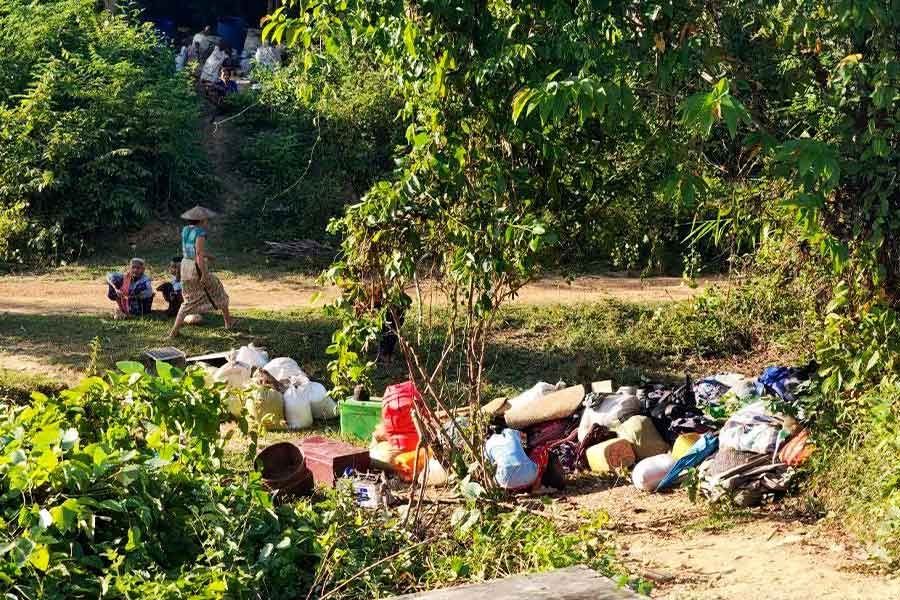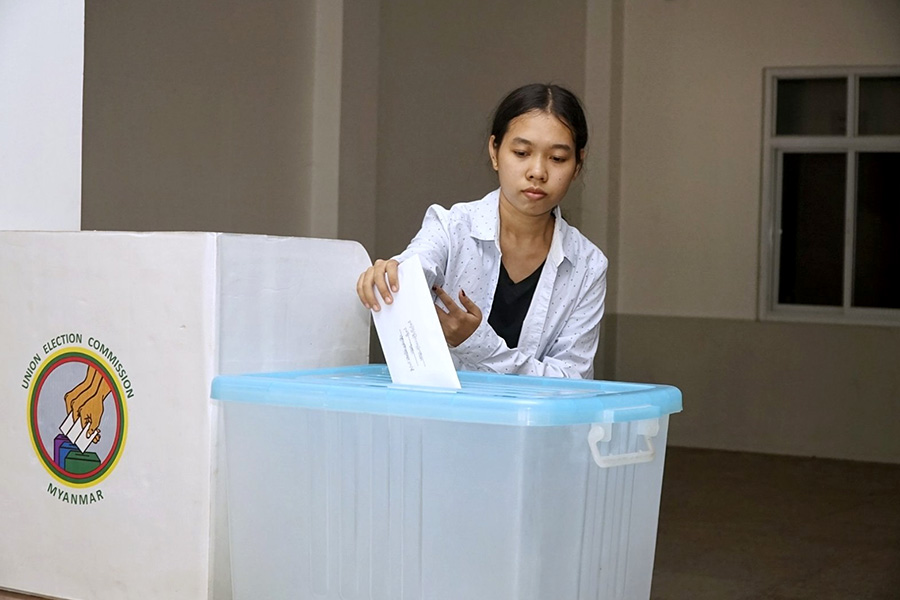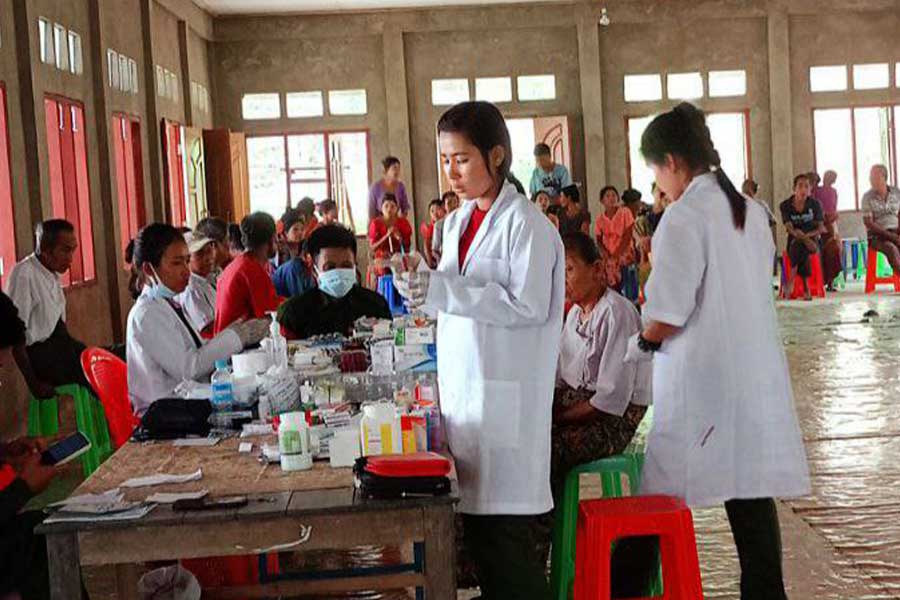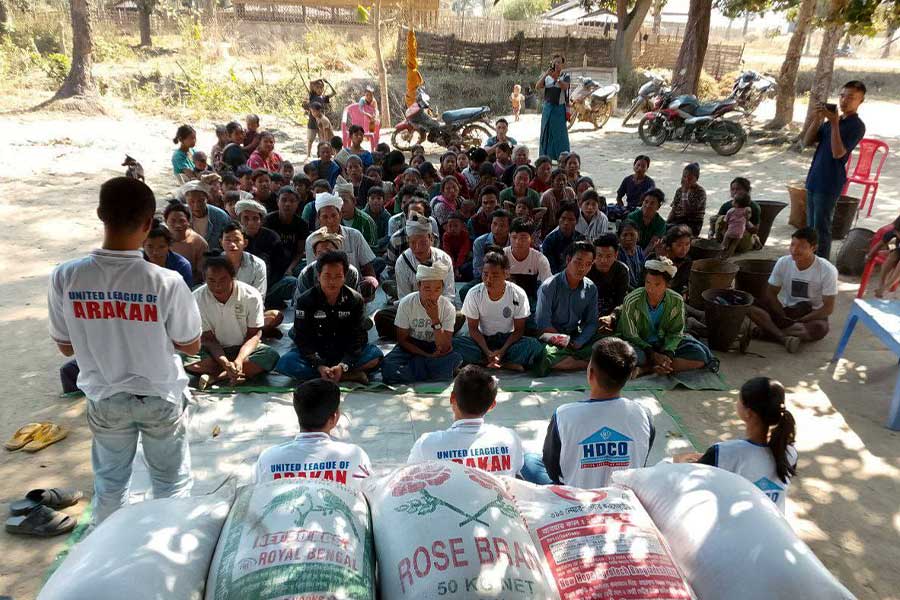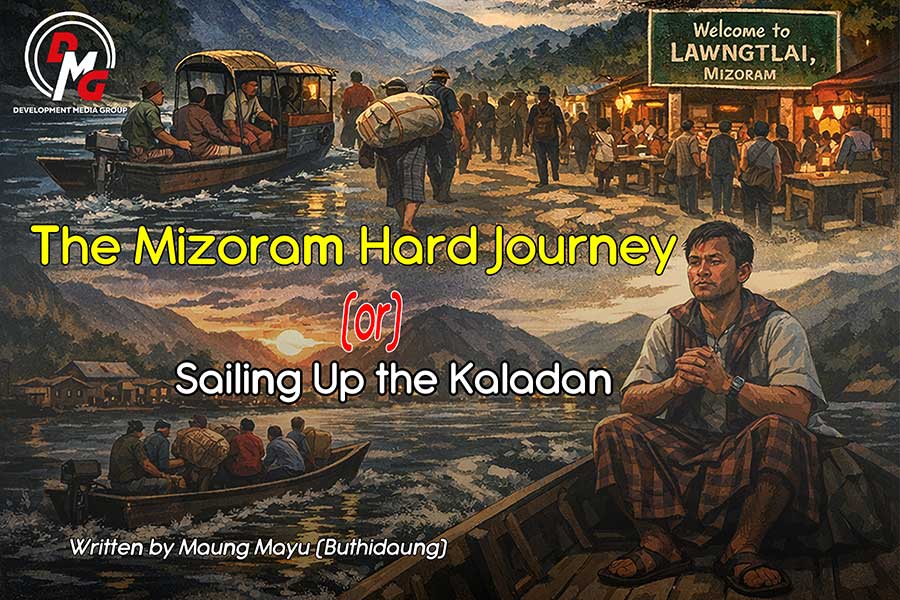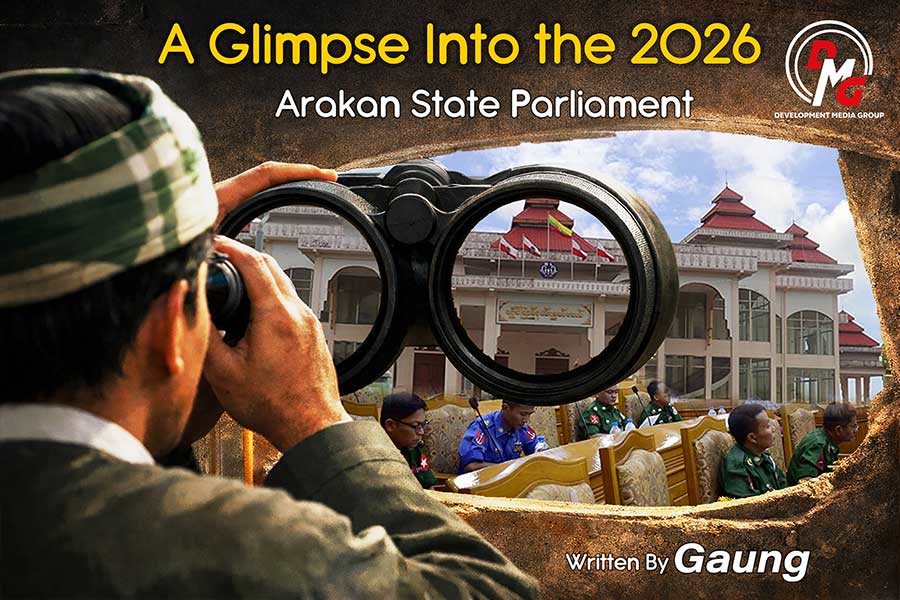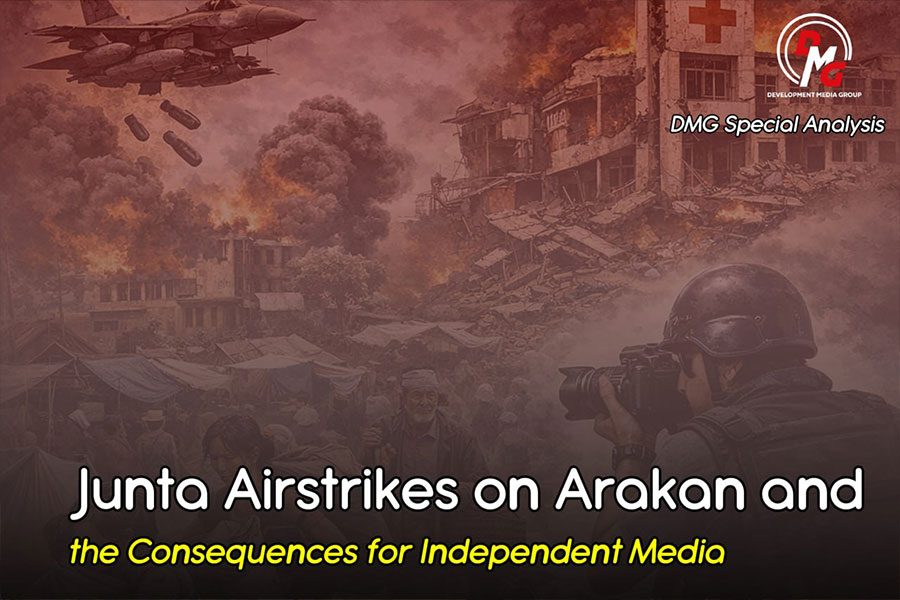- 15 mass casualty incidents from regime airstrikes reported in Arakan State since 2023
- Kyaukphyu IDPs forced to flee again amid junta airstrikes and artillery attacks
- New Diplomatic Movements Between Bangladesh’s New Government and the Arakan Public Administration
- Junta claims over 24 million ballots cast in 2025 poll, cites strong youth turnout
- ULA expands HIV prevention, healthcare services for sex workers in AA-held areas
Two Years of the Arakan Offensive and the Challenges Behind Military Success
The major offensive to seize towns in Arakan (Rakhine) State, which began on November 13, 2023, has now reached its two-year mark on November 13, 2025.
13 Nov 2025
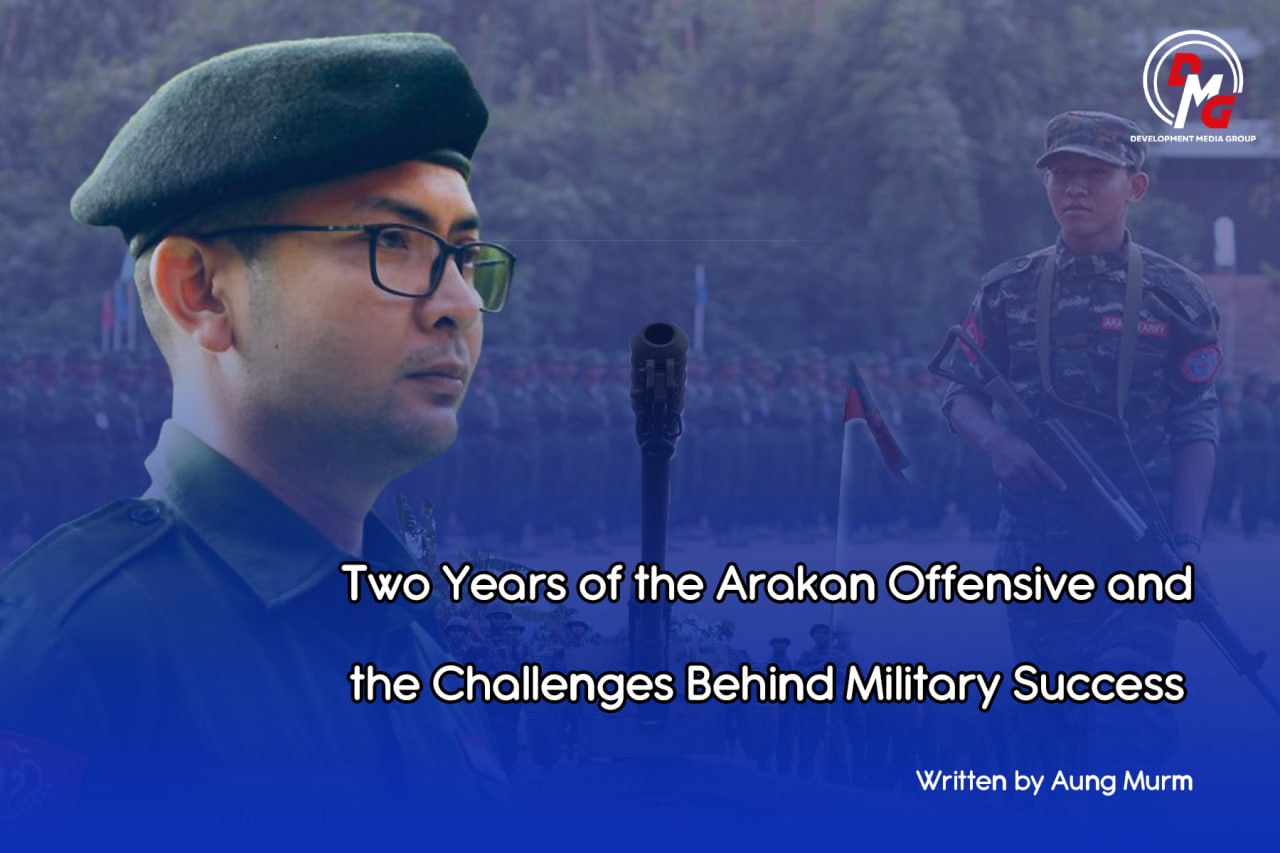
Written by Aung Murm
The major offensive to seize towns in Arakan (Rakhine) State, which began on November 13, 2023, has now reached its two-year mark on November 13, 2025.
Currently, the Arakan Army (AA) controls nearly all townships in Arakan State except Sittwe, Kyaukphyu, and Manaung, as well as Paletwa Township in Chin State.
Within these controlled territories, the AA has begun to establish administrative and judicial systems, along with public service mechanisms for local residents.
However, as the AA's territorial control expands, both the Arakan Army and the Arakan People's Government are facing growing internal and external challenges.
Broadly speaking, these challenges can be categorized into three main areas:
1. The junta's counteroffensives
2. Threats from Muslim armed groups (ARSA and RSO)
3. Economic hardship and humanitarian concerns
1. The Junta's Counteroffensives
One of the key challenges currently confronting the AA is defending its territories from the military junta's counteroffensives.
Following Operation 1027, which began in northern Shan State, anti-junta resistance forces across Myanmar managed to seize nearly 100 towns from the military. However, due to the junta's subsequent counterattacks, many of those gains have since been lost.
The Kokang armed group, Myanmar National Democratic Alliance Army (MNDAA), was forced to withdraw from Lashio, and the Ta'ang National Liberation Army (TNLA) also agreed with the junta to retreat from Namsan, Kyaukme, and Hsipaw, as well as from the towns of Mogok and Momauk.
Aiming to reoccupy towns it previously abandoned, the junta is now pushing aggressively to prepare for elections, targeting southern Arakan's Ann, Taungup, Thandwe, and Gwa townships, while simultaneously conducting ground offensives from the Bago, Magway, and Ayeyarwady regions.
Military analyst CDM Brigadier General Zing Yaw noted that, in addition to ground and air assaults, the junta might deploy its navy for amphibious landings in southern Arakan.
"The military now feels freer to operate in the Arakan front. If they go ahead with elections in Ann, Taungup, Thandwe, and Gwa, there will likely be both air and naval attacks - even landings from sea routes," he said.
As part of its usual military strategy of pressure through violence, the junta continues to target civilians with airstrikes in Ponnagyun, Rathedaung, Minbya, and Kyaukphyu townships.
According to Chin resistance leader Salai Yaw Man, Chin forces and the AA will jointly resist the junta columns advancing from the Chin State side.
Local residents have also reported that the junta has been reinforcing its troops near the Sittwe and Kyaukphyu fronts in preparation for renewed counteroffensives.
In Kyaukphyu, residents said the junta has launched multi-pronged assaults within a 14-mile radius of the town, using land, sea, and air forces, pushing AA units to temporarily fall back.
Similarly, in the Sittwe front, the junta has been conducting daily artillery shelling and drone attacks targeting Ponnagyun, Rathedaung, and Pauktaw townships.
2. Threats from ARSA and RSO
After the AA captured all of Maungdaw Township and took full control of the Bangladesh border in December 2024, Muslim armed groups began launching a series of attacks against AA troops.
Both the Arakan Rohingya Salvation Army (ARSA) and the Rohingya Solidarity Organization (RSO) have been active along the northern Maungdaw-Bangladesh border and along the Naf River, ambushing and sniping at AA security personnel.
ARSA units have also been moving along the Mayu mountain range area, reportedly carrying out brutal killings and abductions of local civilians.
According to data compiled by DMG, 61 civilians were killed between May and October 2025 in Maungdaw and Buthidaung townships as a result of violence perpetrated by Muslim armed groups.
Meanwhile, Muslims living in refugee camps inside Bangladesh have been openly supporting ARSA and RSO and organizing demonstrations against the AA.
These border tensions have strained relations between the AA and Bangladesh - a development that analysts say also adds political pressure on Myanmar's junta.
Political analyst and writer Wai Hun Aung commented: "The Muslims in Bangladesh are encouraging and assisting ARSA and RSO. They're campaigning to return to Arakan without any coordination with the AA, which has created both political and diplomatic challenges for the AA in its relationship with Bangladesh."
He added: "It has also become a perfect pretext for the junta to inflame religious tensions. But I believe the AA, which has overcome many hardships, will continue to persevere."
On the international front, the AA is also facing pressure from Muslim activists and human rights organizations accusing it of rights violations against Muslim civilians.
Analysts suggest that to effectively counter the threat posed by these armed groups, the AA needs to strengthen its military capacity while also expanding outreach and counter-efforts against radical Islamist networks.
"I don't believe the United League of Arakan (ULA)/AA will stray from the 'Rakhita Way' (its national policy). The Arakanese people understand the sacrifices made and continue to hope that the AA will fulfill the Arakan Dream - free from any form of dictatorship," said a former Arakanese student from the 88 Generation.
3. Economic Hardship and Humanitarian Concerns
Beyond the heavy fighting, the people of Arakan are also suffering from severe economic hardship due to the junta's blockades and restrictions.
According to a UNDP report released on October 9, 2024, about 32% of Arakan residents have lost access to employment, education, and livelihood training opportunities.
Over 600,000 people in Arakan are currently displaced, struggling with food shortages, lack of shelter, and limited healthcare.
A displaced woman from Sittwe Township, Daw Yin Mar Win, shared: "We can't afford daily expenses. It costs around 20,000 kyats to buy necessities, but we only earn 10,000. Prices are rising. We can't even buy clothes. When we fall sick, we rely on traditional medicine because we can't afford proper treatment. Out of eight family members, only three have jobs."
At present, the AA has opened one trade route through India's Mizoram State, but poor road conditions and trade restrictions have made commerce difficult.
Traders report that the import of essentials such as fuel, medicines, and fertilizers from Mizoram is still limited, keeping prices high in Arakan.
Analysts argue that the AA must adopt comprehensive political, military, and economic strategies to stabilize the region, mitigate humanitarian suffering, and maintain governance in its controlled areas.




